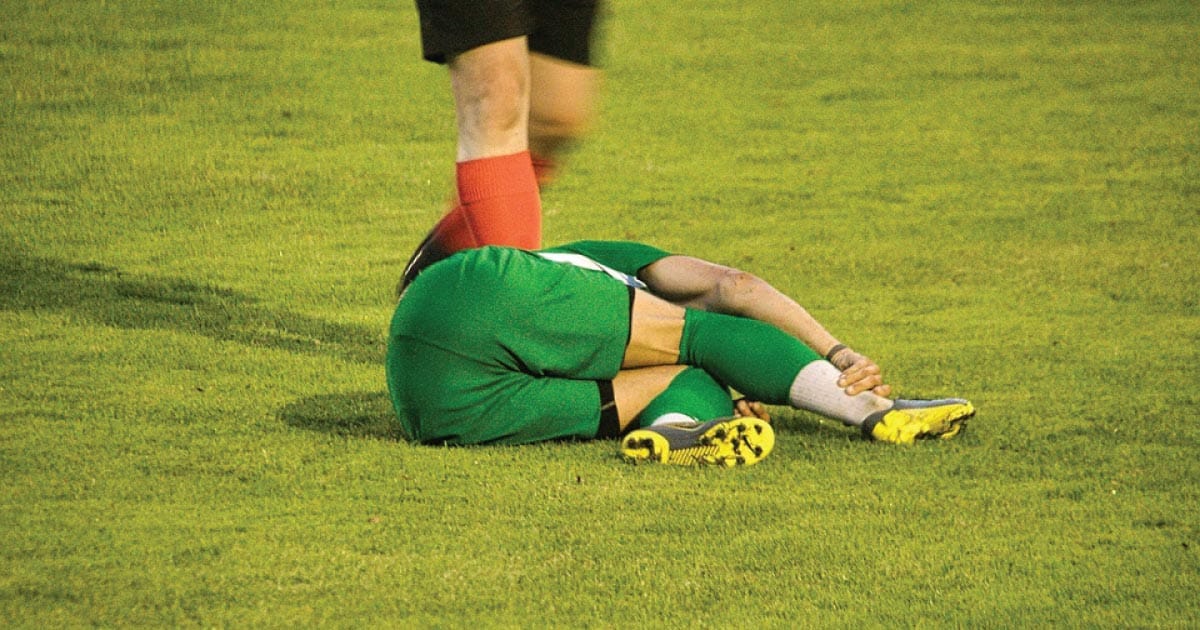Football is a sport that goes beyond your physical and tactical ability; mental strength plays a crucial role in your performance as a player. From youth to professional levels, mental training has become an essential component for you to achieve success in the field.
Developing your ability to handle pressure, maintain focus and overcome adversity is just as important as honing your technical skills.
The Importance of Psychology in the Sports Performance of a Footballer
Sports psychology offers you powerful tools to improve your performance as a footballer. These techniques are not only applicable in a clinical or therapeutic setting but are an integral part of your daily training routine.
Each stage in your career as a footballer requires a specific mental approach; what works for you in youth categories might not be the same when you are a senior player. Adapting psychological techniques to your needs is essential to maximise their effectiveness.
Key Techniques in Psychological Training in Football
Visualization: Mental Preparation Before the Match
Visualisation is a technique that has gained popularity among elite footballers such as Robert Lewandowski. It involves vividly and in detail imagining situations that could occur on the pitch, from executing a pass to scoring a decisive goal.
This mental exercise prepares you to react optimally when you face those situations in reality. Visualisation not only improves your confidence but also fine-tunes your motor responses, which can make all the difference in a match.
Emotional Control and Resilience in Adverse Situations
Football is full of unforeseen events and constant challenges. Maintaining emotional control in the midst of pressure is crucial. Teams like Real Madrid have shown that the ability to bounce back in adverse situations is not a matter of luck but of solid mental preparation.
Training your resilience, or the ability to bounce back quickly from setbacks, is essential. Coaches should not only focus on your physical condition but also on your ability to face and overcome difficulties with a strong and focused mindset.
Using Training Diaries to Monitor Progress
A training journal is a valuable tool for you as a footballer. It is not only about recording physical exercises but also about writing down your thoughts, emotions and reflections on daily performance. This habit allows you to identify patterns, limiting beliefs and areas for improvement in your mindset.
With the guidance of a sports psychologist, these journals become a source of self-knowledge that facilitates a more intentional and effective approach to each training session.
Setting Clear and Achievable Goals
Goal setting is a fundamental aspect of mental training in modern football. Without clear objectives, it is easy to lose direction and motivation. You should set short, medium and long-term goals, and these should be specific, measurable, achievable, relevant and time-bound (SMART).
This approach ensures that you maintain your motivation and work steadily towards your goals, without feeling overwhelmed by the magnitude of your aspirations.
The Power of Relaxation and Anxiety Control
Anxiety is a common emotion in football, especially at key moments such as tournament finals or decisive matches. In mental training for footballers, relaxation techniques, such as deep breathing and meditation, help you stay calm and reduce tension.
Learning to manage anxiety not only improves your performance but also contributes to your general well-being, allowing you to enjoy the game more.
Mindfulness and Positive Self-Talk: Tools for Success
Mindfulness has become an essential practice for many athletes. It helps you stay focused on the present, avoiding distractions and keeping your mind clear during the game. Along with mindfulness, positive self-talk plays a crucial role. Reinforcing constructive and motivating thoughts, and counteracting negative thoughts, will help you maintain a winning mindset.
Affirmations like “I am prepared,” “I can handle this pressure,” or “Every mistake is a learning opportunity” are examples of how self-talk can positively influence your performance.
Improving Cognitive Processes: Memory, Speed and Concentration
Mental training for footballers also includes developing key cognitive skills such as memory, speed of thought and concentration. Exercises that challenge your mind, such as strategy games or specific attention techniques, help you improve these abilities.
A footballer who can process information quickly and stay focused on the goal will be more effective in high-pressure situations, such as handling the ball in tight spaces or making quick decisions in the penalty area.
Conclusion: Integrating Mental Training into the Footballer’s Routine
Mental training in modern football is not an optional extra, but an essential pillar of your development as a footballer. From visualisation to anxiety control, each technique plays a crucial role in your complete preparation. Integrating these practices into your daily routine not only improves your performance on the field but also contributes to your personal and professional growth.
In a sport as competitive as football, those who master both the mind and the body are the ones who achieve true success.











Leave a Review